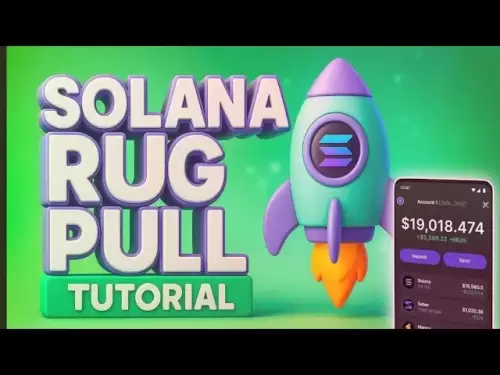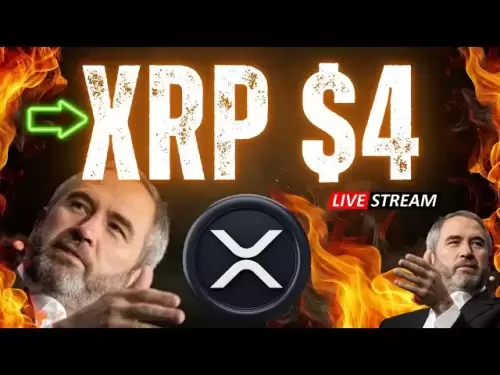-
 Bitcoin
Bitcoin $118100
-0.44% -
 Ethereum
Ethereum $3585
5.43% -
 XRP
XRP $3.434
5.65% -
 Tether USDt
Tether USDt $1.000
0.02% -
 BNB
BNB $743.8
3.89% -
 Solana
Solana $178.7
3.84% -
 USDC
USDC $1.000
0.03% -
 Dogecoin
Dogecoin $0.2381
12.81% -
 TRON
TRON $0.3270
3.62% -
 Cardano
Cardano $0.8315
4.93% -
 Hyperliquid
Hyperliquid $44.51
-4.42% -
 Stellar
Stellar $0.4710
1.52% -
 Sui
Sui $3.896
-2.51% -
 Chainlink
Chainlink $18.09
6.98% -
 Hedera
Hedera $0.2681
9.31% -
 Bitcoin Cash
Bitcoin Cash $516.7
4.83% -
 Avalanche
Avalanche $23.95
6.96% -
 Shiba Inu
Shiba Inu $0.00001490
5.67% -
 UNUS SED LEO
UNUS SED LEO $8.966
0.80% -
 Toncoin
Toncoin $3.294
4.39% -
 Litecoin
Litecoin $105.4
4.69% -
 Polkadot
Polkadot $4.356
5.30% -
 Uniswap
Uniswap $10.29
17.25% -
 Monero
Monero $327.9
-3.04% -
 Bitget Token
Bitget Token $4.942
4.33% -
 Ethena USDe
Ethena USDe $1.001
0.08% -
 Pepe
Pepe $0.00001348
2.17% -
 Dai
Dai $1.000
0.02% -
 Aave
Aave $320.8
0.58% -
 Bittensor
Bittensor $411.8
-4.07%
How do Bitcoin payment platforms deal with transaction congestion and high transaction fees?
Bitcoin payment platforms use transaction batching, fee optimization, and off-chain solutions like the Lightning Network to manage congestion and high fees effectively.
Apr 21, 2025 at 04:36 am

Bitcoin payment platforms face significant challenges when dealing with transaction congestion and high transaction fees. These issues arise primarily due to the limited block size and the increasing demand for Bitcoin transactions. To address these problems, various strategies and technologies have been implemented by payment platforms. This article will explore how these platforms manage transaction congestion and high fees, providing a detailed look at the mechanisms and solutions in place.
Understanding Transaction Congestion
Transaction congestion occurs when the number of pending transactions exceeds the capacity of the Bitcoin network to process them within a reasonable timeframe. This is largely due to the fixed block size limit of 1 MB, which can only accommodate a certain number of transactions per block. When the network is congested, transactions can take hours or even days to be confirmed, which is problematic for users and businesses relying on timely transactions.
To mitigate this, Bitcoin payment platforms employ several strategies. One common approach is transaction batching, where multiple transactions are combined into a single transaction. This reduces the number of transactions that need to be processed, thereby alleviating some of the congestion. Platforms also prioritize transactions based on their fee rate, ensuring that higher-fee transactions are processed more quickly.
Managing High Transaction Fees
High transaction fees are another significant issue for Bitcoin payment platforms. Fees are determined by the market dynamics of supply and demand for block space. During periods of high demand, users must pay higher fees to have their transactions processed promptly. This can be particularly burdensome for small transactions, where the fee might exceed the transaction amount itself.
To address high fees, payment platforms often implement fee optimization techniques. One such technique is dynamic fee adjustment, where the platform automatically adjusts the fee based on current network conditions. This ensures that transactions are processed as quickly as possible without overpaying. Additionally, platforms may use fee estimation algorithms to predict the minimum fee required for timely transaction confirmation, helping users avoid unnecessary costs.
Implementing Off-Chain Solutions
To further alleviate the issues of congestion and high fees, many Bitcoin payment platforms have turned to off-chain solutions. One of the most popular off-chain solutions is the Lightning Network. The Lightning Network allows for instant, low-cost transactions by conducting them off the main Bitcoin blockchain. Transactions are only settled on the blockchain when necessary, significantly reducing the load on the network and the associated fees.
To use the Lightning Network, users must first open a payment channel with another party. Here's how to set up a Lightning Network channel:
- Choose a Lightning Network wallet: Select a wallet that supports the Lightning Network, such as Eclair, LND, or c-lightning.
- Fund the wallet: Transfer Bitcoin to the wallet to be used for opening channels.
- Open a channel: Use the wallet to open a payment channel with another party. This involves sending a transaction to the blockchain to lock funds in the channel.
- Conduct transactions: Once the channel is open, you can send and receive payments instantly and at a low cost.
- Close the channel: When you're done, close the channel to settle the final balance on the blockchain.
Utilizing Segregated Witness (SegWit)
Another solution implemented by Bitcoin payment platforms to address transaction congestion and high fees is Segregated Witness (SegWit). SegWit is a protocol upgrade that separates the signature data from the transaction data, allowing more transactions to fit into each block. This increases the effective block size and reduces the fees required for transactions.
To take advantage of SegWit, platforms must ensure that their infrastructure supports SegWit transactions. Here's how to enable SegWit on a Bitcoin wallet:
- Choose a SegWit-compatible wallet: Select a wallet that supports SegWit, such as Electrum or Bitcoin Core.
- Generate a SegWit address: Use the wallet to generate a SegWit address, which typically starts with "bc1" or "3".
- Send and receive transactions: Use the SegWit address for sending and receiving transactions, which will automatically benefit from lower fees and faster processing.
Leveraging Transaction Acceleration Services
Some Bitcoin payment platforms offer transaction acceleration services to help users bypass congestion and high fees. These services work by paying higher fees on behalf of the user to expedite transaction processing. While this can be an effective solution, it often comes at an additional cost to the user.
To use a transaction acceleration service, follow these steps:
- Select a platform offering acceleration services: Choose a platform that provides transaction acceleration, such as ViaBTC or BTC.com.
- Submit the transaction ID: Provide the transaction ID of the transaction you want to accelerate.
- Pay the acceleration fee: The platform will charge an additional fee to prioritize your transaction.
- Monitor the transaction: Keep an eye on the transaction status to ensure it is processed quickly.
Conclusion
Bitcoin payment platforms employ a variety of strategies to manage transaction congestion and high transaction fees. By implementing transaction batching, fee optimization, off-chain solutions like the Lightning Network, SegWit, and transaction acceleration services, these platforms can provide a more efficient and cost-effective experience for users. Understanding these mechanisms is crucial for anyone involved in Bitcoin transactions, as they directly impact the usability and cost of using Bitcoin as a payment method.
Frequently Asked Questions
Q: Can transaction congestion affect the security of Bitcoin transactions?
A: Transaction congestion itself does not directly affect the security of Bitcoin transactions. However, it can lead to longer confirmation times, which might increase the risk of double-spending attacks if transactions are not adequately protected. Using higher fees or off-chain solutions can mitigate these risks.
Q: Are there any alternatives to Bitcoin that handle transaction congestion and fees better?
A: Yes, several cryptocurrencies have been designed to address these issues more effectively. For example, Bitcoin Cash (BCH) has a larger block size, which can handle more transactions per block, reducing congestion and fees. Ethereum also offers faster transaction processing through its upcoming upgrades.
Q: How can businesses using Bitcoin payment platforms minimize the impact of high fees on their operations?
A: Businesses can minimize the impact of high fees by implementing strategies such as batching transactions, using the Lightning Network for smaller transactions, and optimizing fees through dynamic adjustment. Additionally, they can consider using alternative cryptocurrencies with lower fees for certain transactions.
Q: What role do miners play in transaction congestion and fees?
A: Miners play a crucial role in transaction congestion and fees as they prioritize transactions based on the fees attached. Higher fees incentivize miners to include transactions in the next block, which can help alleviate congestion. However, this also contributes to the overall increase in fees during peak times.
Disclaimer:info@kdj.com
The information provided is not trading advice. kdj.com does not assume any responsibility for any investments made based on the information provided in this article. Cryptocurrencies are highly volatile and it is highly recommended that you invest with caution after thorough research!
If you believe that the content used on this website infringes your copyright, please contact us immediately (info@kdj.com) and we will delete it promptly.
- Meme Coin Mania: BONK, FLOKI, and the Quest for Crypto Gold
- 2025-07-19 10:50:12
- Troller Cat Presale Surge: The Meme Coin That's Actually Good?
- 2025-07-19 10:50:12
- XRP Mining for Passive Income: Is It the Next Big Thing?
- 2025-07-19 10:30:12
- Neo Blockchain & ChainGPT: AI Revolutionizing Decentralized Applications
- 2025-07-19 10:35:13
- Altcoins, Ethereum, and SharpLink: A New Era in Crypto Investment?
- 2025-07-19 09:15:12
- Coin Shop Homicide: Guilty Verdict After Decade-Long Wait
- 2025-07-19 08:50:13
Related knowledge

How to add indicators to Ethereum chart on TradingView?
Jul 19,2025 at 07:15am
What Is an Ethereum Chart on TradingView?The Ethereum chart on TradingView is a visual representation of the price movement of Ethereum (ETH) over a s...
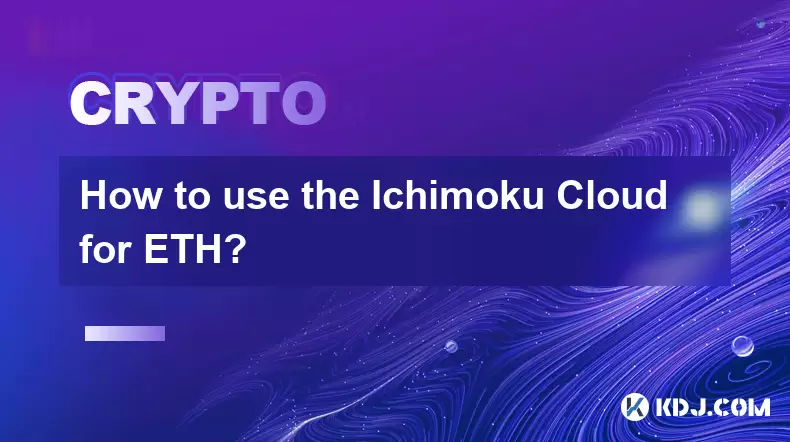
How to use the Ichimoku Cloud for ETH?
Jul 18,2025 at 09:56pm
Understanding the Ichimoku Cloud and Its ComponentsThe Ichimoku Cloud, also known as Ichimoku Kinko Hyo, is a versatile technical analysis tool that p...
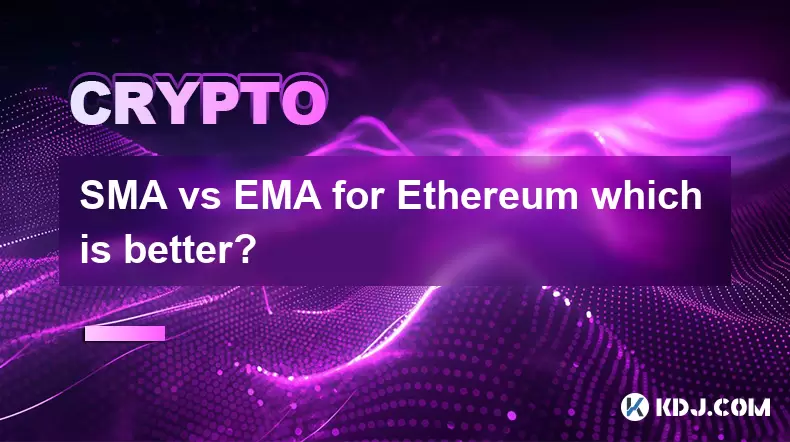
SMA vs EMA for Ethereum which is better?
Jul 19,2025 at 12:36am
Understanding the Basics of SMA and EMAIn the world of cryptocurrency trading, especially when dealing with Ethereum, technical indicators play a cruc...
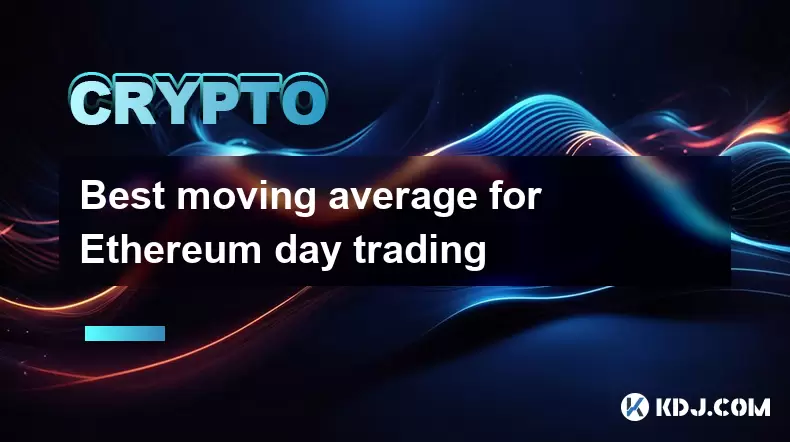
Best moving average for Ethereum day trading
Jul 19,2025 at 01:42am
Understanding the Role of Moving Averages in Ethereum Day TradingIn the realm of Ethereum day trading, moving averages are indispensable tools for ide...

How to customize USDT TRC20 mining fees? Flexible adjustment tutorial
Jun 13,2025 at 01:42am
Understanding USDT TRC20 Mining FeesMining fees on the TRON (TRC20) network are essential for processing transactions. Unlike Bitcoin or Ethereum, whe...

USDT TRC20 transaction is stuck? Solution summary
Jun 14,2025 at 11:15pm
Understanding USDT TRC20 TransactionsWhen users mention that a USDT TRC20 transaction is stuck, they typically refer to a situation where the transfer...

How to add indicators to Ethereum chart on TradingView?
Jul 19,2025 at 07:15am
What Is an Ethereum Chart on TradingView?The Ethereum chart on TradingView is a visual representation of the price movement of Ethereum (ETH) over a s...

How to use the Ichimoku Cloud for ETH?
Jul 18,2025 at 09:56pm
Understanding the Ichimoku Cloud and Its ComponentsThe Ichimoku Cloud, also known as Ichimoku Kinko Hyo, is a versatile technical analysis tool that p...

SMA vs EMA for Ethereum which is better?
Jul 19,2025 at 12:36am
Understanding the Basics of SMA and EMAIn the world of cryptocurrency trading, especially when dealing with Ethereum, technical indicators play a cruc...

Best moving average for Ethereum day trading
Jul 19,2025 at 01:42am
Understanding the Role of Moving Averages in Ethereum Day TradingIn the realm of Ethereum day trading, moving averages are indispensable tools for ide...

How to customize USDT TRC20 mining fees? Flexible adjustment tutorial
Jun 13,2025 at 01:42am
Understanding USDT TRC20 Mining FeesMining fees on the TRON (TRC20) network are essential for processing transactions. Unlike Bitcoin or Ethereum, whe...

USDT TRC20 transaction is stuck? Solution summary
Jun 14,2025 at 11:15pm
Understanding USDT TRC20 TransactionsWhen users mention that a USDT TRC20 transaction is stuck, they typically refer to a situation where the transfer...
See all articles
























